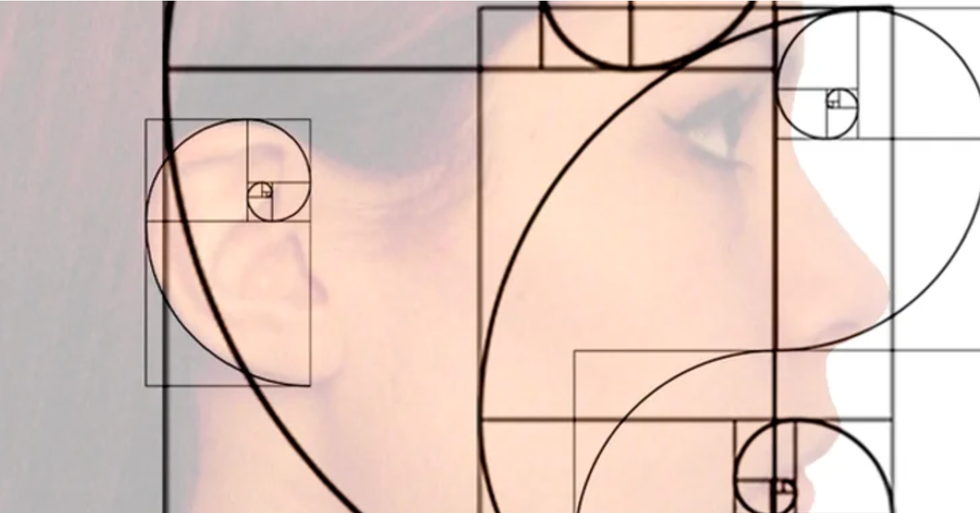Nike endorses the hijab
A few days ago, Nike announced that they will create a Nike Pro Hijab and bring it into the market in 2018. The sport-compatible hijab is slightly tighter than regular, more loose-fitting hijabs and bears the world-famous Nike check-mark logo on its side.
Why is Nike creating their own hijab? There are two primary reasons, the first being vapid virtue signaling. It’s a PR move specifically tailored for Western progressive types to let them know that Nike is a company that promotes “diversity”, “tolerance”, and “inclusion”.
After all, what latte-drinking, scarf-wearing Hipster millennial worth his/her/zir salt would ever step foot into a Nike store again if they perceived Nike to be an intolerant, bigoted company that promotes “Islamophobia”? This moderately sized, annoying, and—rather noisy—group of people needs to be appeased, and since a pathological adulation of Islam is what this group wants, out comes from the Ether a Nike-endorsed hijab.
The second, more important reason for the new product is the same reason why any company creates any product—profit and market expansion. Muslims spent $243 billion on clothing in 2014. A large portion of clothing expenditures for women includes buying hijabs, providing a lucrative incentive for the world’s most-valuable brand to establish a presence in this market.
A company’s bottom line, ultimately, is about generating profits, and the PR and marketing campaigns they use to promote tolerance is a veneer to ensure they enter the Muslim clothing market.
You may read the previous sentence and think it is nothing more than a presumptuous assertion with no evidence presented to support itself. How do I know if they are genuine or not in accepting tolerance? You’re right. I don’t know for sure, as I am not a mind reader. I will, however, present a conjecture for you to consider: why now? Why create a hijab and enter this market when it is socially convenient? Surely the market was as lucrative 10 years ago during the height of the Iraq War. Surely “tolerance” and “inclusion” was needed then as it was needed during the aftermath of 9/11 when innocent Muslims were ostracized and beaten because they looked like the hijackers who collapsed the World Trade Center. Surely creating the Pro Hijab at that time would have announced to the world that Nike held moral values above monetary value, but alas, Nike did not stand up and make a bold statement. Nike waited until it was trendy to make their statement.
Nike has the right to create whatever products they want to increase their profit margin as much as possible, but I will, however, criticize their choice to endorse the hijab.
The hijab is a tool of oppression
Make no mistake about it—the hijab is a symbol of misogyny and serves as an overt reminder to women that their sexuality is not their own, and that it must be covered in public—
at all times—at the behest of men for their benefit. Why the man’s benefit? Because he is spared from the adulterous sin of coveting a woman to whom he is not married, and she is spared the fate of shamelessly stoking men’s desires by flaunting her hair around like a tramp.Her sexuality is the initiator of men’s desires, therefore she must cover herself up, and men don’t have to wear an equivalent article of clothing.
Critics will snap back and say the hijab is not an oppressive symbol, but rather it is a symbol of modesty. They will furthermore argue that the hijab is only a cultural preference, and that wearing it is not a mandate from the Quran. Women can choose whether or not to wear the hijab in public.
I object to both points made. Regarding its mandated status in the Quran, there is internal debate in the Muslim community as to whether or not the Quran demands its usage. The website Islam Stack Exchange, which is entirely devoted to discussing questions about Islam by the Muslim community to both Muslims and non-Muslims, specifically asks the question: “Is modesty without hijab possible?”
This is the short response given:
“In Islam, hijab has always been obligatory. From an intellectual perspective, full, integral modesty is not possible without hijab because, in principle, virtues such as modesty and chastity have external concomitants that have to observed, abandoning which leads to moral ills that are contrary to that virtue.”
The author continues his response by citing Quran verses and hadiths that provide textual evidence for the necessity of wearing the hijab in public to suppress women’s sexuality for the sake of modesty.
Regarding the other point, of it being a symbol of modesty, modesty without voluntary interaction cannot exist—it’s submission. Just as sex without consent is rape and stealing isn’t charity, consent is the major factor of any moral system. It is easy to say, in theory, that Muslim women in the Middle East have the choice to wear the hijab or not, but what happens when a woman actually attempts to go in public without the hijab?
What happens to the Women of Valor?
A variety of responses is possible: from wide-eyed gazes of disbelief to scoffing facial expressions from everyone around her and a multitude of comments demanding her to cover up in public. Labelling and name calling is bound to happen, “tramp!” “whore!”, etc. When a person deviates from social norms, they stand out, and often times, negatives responses are elicited from those who obey the rules.
The worst responses include incarceration, death threats, and actual executions. In 2016, a woman named Malak Al Sheri received death threats—widespread calls for her execution—for tweeting a picture of herself without the hijab while walking in Riyadh, Saudi Arabia. She was later arrested by the so-called "religious police" and now faces lashes from the whip as her punishment for committing the unholy act of choosing to show off her hair. This barbaric, Medieval practice is an indisputable act of oppression.
Malak Al Sheri is a hero and her story deserves to be relayed to anyone with the conscience to sympathize with her plight. Her story serves as a modern-day reminder that ancient belief systems still brutalize those who feel compelled to follow their own standards.
It should be noted that laws and expectations vary from country to country. Some countries, like Iran, Sudan, and Saudi Arabia, require women to wear the hijab in public or face criminal charges. Other countries, like Turkey and Syria, ban the hijab in universities and public places. A gradient of expectations exists in the Islamic world, but that doesn’t negate the misery women across large portions of the Middle East have to endure on a daily basis because of the hijab.
The big picture
Know that Nike is not creating this hijab on principles of any kind. Know that Nike is trying to capitalize on a concept that is, in part, responsible for the oppression of millions of women in the Islamic world, and that they are explicitly endorsing misogyny by putting their logo on the hijab.
People of conscience should write Nike’s representatives and inform them, should they be ignorant of the truth about the hijab, of the enormous error they are presenting to the world by normalizing and legitimizing one of the most abhorrent aspects of a brutal and absolutist religion that cares nothing about women—only the reinforcement of its own control across the world.



 Photo by
Photo by  Photo by
Photo by  Photo by
Photo by  Photo by
Photo by  Photo by
Photo by  Photo by
Photo by  Photo by
Photo by 


 File:Hampton Beach, New Hampshire - low tide - panoramio.jpg ...
File:Hampton Beach, New Hampshire - low tide - panoramio.jpg ... fire on fire pit during night time
Photo by
fire on fire pit during night time
Photo by  Free Images : american lobster, dish, new england clam bake ...
Free Images : american lobster, dish, new england clam bake ... vanilla flavor ice cream with chocolate syrup
Photo by
vanilla flavor ice cream with chocolate syrup
Photo by  File:Celebrity Silhouette (ship, 2011) 002.jpg - Wikimedia Commons
File:Celebrity Silhouette (ship, 2011) 002.jpg - Wikimedia Commons
 StableDiffusion
StableDiffusion
 StableDiffusion
StableDiffusion
 StableDiffusion
StableDiffusion
 StableDiffusion
StableDiffusion
 StableDiffusion
StableDiffusion
 StableDiffusion
StableDiffusion










